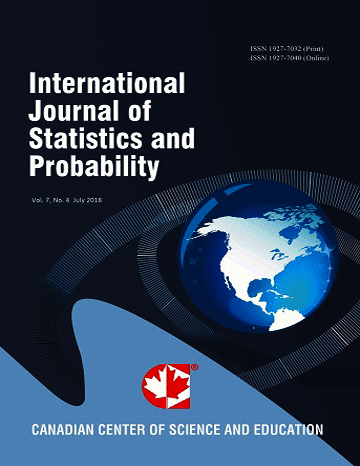The Vanderbilt Nigeria Biostatistics Training Program (VN-BioStat): Results From a Skills Workshop
- Bryan E. Shepherd
- Nafiu Hussaini
- Alex Huang
- Chelsea Van Wyk
- Meira S. Kowalski
- Donna J. Ingles
- C. William Wester
- Chun Li
- Muktar H. Aliyu
Abstract
The Vanderbilt-Nigeria Biostatistics Training Program (VN-BioStat) aims to establish a research and training platform for biostatisticians doing HIV-related research in Nigeria, including enhancing mid-level biostatistics capacity through annual workshops. This paper describes findings from the inaugural workshop in Kano, Nigeria. Participants were surveyed before and after the workshop to assess their self-perceived familiarity with and confidence in their abilities to use statistical software and apply specific statistical techniques, as well as to gather feedback regarding the conduct of the workshop and future topic areas. Of the 23 participants enrolled in the workshop, 22 (96%) completed both pre- and post-workshop assessments. In both pre-workshop and post-workshop surveys, participants ranked their confidence in statistical skills using Likert scales. Scores were transformed to a 0-100 scale, and averages computed. Participants also shared open-ended feedback about the workshop and suggested future topic areas. Before the training, the average participant reported having either a "beginner" (30% of participants) or "moderate" (43%) level of familiarity with R. Many participants (65%) rated themselves as having “moderate” or “expert” familiarity with SPSS. Pre-workshop averages for confidence ranged from 26 to 64, with lowest confidence in “expanding continuous covariates in regression models and interpret results” and highest confidence in “fitting and interpreting results from a linear regression model”. Post-workshop averages for confidence were all above 70. The lowest post-workshop score (74) was for “fit and interpret results from a semiparametric linear transformation model”. The greatest increase in confidence was observed in "expanding continuous covariates in regression models using splines and interpreting results" and the lowest increase was in "fitting and interpreting results from a linear regression model." Participants offered positive feedback on instructor effectiveness (4.9/5) and overall course quality (4.9/5). While the overall course was rated on a 0-100 scale as “moderately difficult” (mean ± SD: 40.5 ± 17.5), the participants felt the course was highly organized (87.7 ± 17.8), and the information was moderately easy to learn (81.9 ± 15.9). Suggestions for future workshops included providing supplementary resources for out-of-classroom learning and releasing codes in advance to enhance participants’ preparation. Among suggestions for future workshop topics, 80% of respondents listed survival analysis. Lessons learned provide insight into how short-term training opportunities can be leveraged to build biostatistics capacity in similar settings.
- Full Text:
 PDF
PDF
- DOI:10.5539/ijsp.v12n6p66
Index
- ACNP
- Aerospace Database
- BASE (Bielefeld Academic Search Engine)
- CNKI Scholar
- DTU Library
- Elektronische Zeitschriftenbibliothek (EZB)
- EuroPub Database
- Excellence in Research for Australia (ERA)
- Google Scholar
- Harvard Library
- Infotrieve
- JournalTOCs
- Mir@bel
- Open policy finder
- ResearchGate
- Technische Informationsbibliothek (TIB)
- UCR Library
- WorldCat
Contact
- Wendy SmithEditorial Assistant
- ijsp@ccsenet.org
